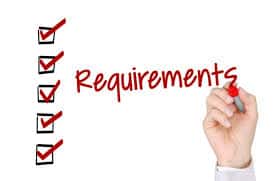You can qualify for Social Security disability if you have a medical impairment or combination of medical impairments that keep you from working. Your conditions must keep you from working for at least 12 months. Social Security offers two types of disability benefits. These include Social Security disability insurance benefits and Supplemental Security Income benefits.
Qualifying for Social Security Disability Insurance Benefits
To qualify for Social Security disability insurance benefits (SSDI), you must have worked a certain number of years. Additionally, you must be between the ages of 18 and 65 years old. You do not need to be a US citizen to qualify for SSDI. Any worker with a valid Social Security number who paid into Social Security may file for benefits.
Qualifying for Social Security Disability and Work Credits
You receive work credits each year that you work and pay taxes. Generally, you need to earn a total of 20 work credits to qualify for SSDI benefits. However, your work needs to have done recently. Like other insurance programs, your coverage ends after a certain amount of time from when you stop working. Unfortunately, if you stopped working more than five years before filing, you may not currently qualify for Social Security disability insurance benefits.
Qualifying for Social Security Disability and Your Date Last Insured
Your date last insured (DLI) is the last date you can qualify for SSDI benefits. Your DLI depends on when you last worked. Typically, your DLI expires five years after you stop working. However, if your earnings were low or inconsistent, your DLI may be less than five years. For example, if you stopped working in 2020, your DLI would expire in 2025.
Qualifying for Social Security Disability with an Expired Date Last Insured
- You may still qualify for SSDI benefits even if your DLI has expired.
- Show your disability began before your DLI expired.
- Medical evidence that shows you couldn’t work before your DLI.
Example 1: qualifying for Social Security disability with an expired DLI
As an example, Susan stopped working in 2012 when her lupus symptoms interfered with her ability to work. As a result, her DLI expired in 2017. Susan would need to show that her lupus symptoms prevented her from working before 2017.
Qualifying for Social Security Disability: Dependent Spouses and Children
Under SSDI, a disabled individual’s spouse and dependent children can receive partial dependent benefits. Social Security pays benefits in addition to the disabled individual, called auxiliary benefits. Spouses may qualify for additional benefits if they have a child under the age of 16. They may also qualify if they are at least 62 years old. Children may qualify if they are:
- Under age 18
- A disabled adult before the age of 22
- A high school student under the age of 19
Qualifying for Supplemental Security Income Benefits
Unlike SSDI, you do not need to earn any work credits to file for Supplemental Security Income (SSI) benefits. Social Security bases SSI eligibility on your income, assets and resources. Additionally, both adults and children can file for SSI benefits. For children, Social Security considers their parents’ income, assets and resources. Dependent children or spouses do not receive payments under SSI.
Income Guidelines to Qualify for SSI Disability Benefits
SSI benefits are considered a “means-tested” benefit. Therefore, you must meet certain income guidelines to file. To meet the SSI income requirements,
- You must have less than $2,000 in assets (or $3,000 for a couple)
- Have a very limited income
- Are a US citizen (there are very few exceptions to this)
Example 2: qualifying for SSI
For example, David hasn’t worked in many years. He recently was in a car accident. He suffered from a very serious back injury. David lived with his parents and received food stamps. He did not have any money in his bank account. Since David had very little income and resources, he was able to file for SSI.
Qualifying for SSDI and SSI
Sometimes, you can file for both SSDI and SSI benefits at the same time. You earned enough work credits for SSDI. You also meet the financial requirements for SSI. Commonly, Social Security calls this “concurrent benefits.”
Example 2: qualifying for SSDI and SSI
For example, Janet worked consistently in the past. However, she had to stop working due to her medical conditions. Now that she is no longer working, she doesn’t have any income. Janet applied for state assistance or relies on others for financial help. Janet can file for SSDI because of her work history. Additionally, she can file for SSI because she now has a limited income.
Medically Qualifying for Social Security Disability Benefits
Social Security also looks at your medical conditions. Social Security considers whether your medical conditions fall under their listing of impairments, known as the Blue Book. Typically, the Blue Book requires that your medical conditions meet very specific requirements. If your condition doesn’t fall under the listings, Social Security will look at what you can still do despite your impairments. Social Security calls this your residual functional capacity. If Social Security determines that your medical conditions keep you from working, they will approve your disability benefits.
Working With a Disability Advocate
Hiring an experienced disability advocate greatly improves your chances of getting approved. A disability advocate will explain both the medical and non-medical rules for qualifying for disability benefits. They can help you file applications and appeals. Most importantly, they prepare you for a hearing if that becomes necessary. Specifically, your disability advocate reviews your file. They also make sure all the necessary medical evidence has been submitted.
Disability Help Group, Call Now for a Free Case Review, 800-700-0652
Make sure you start your claim the right way and apply for all the benefits you deserve. Contact us now for a free consultation.
Related Articles
- Is Osteoporosis a Disability?
- What is the Difference Between SSI and SSDI?
- I Just Received a Function Report Questionnaire from Social Security. What Should I Do?
- Why Your SSD Claim Might Be Denied?
- What is the SSDI Payment Schedule?
- How can I Check on My Disability Claim?
- Why Should I Hire a Disability Lawyer?
- What are the Over 55 Grid Rules?
- VA Benefits Appeal
- VA Disability Remand
- What are Social Security Disability Questions?







